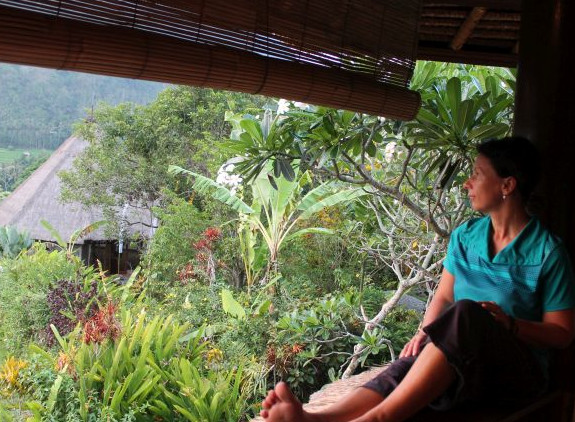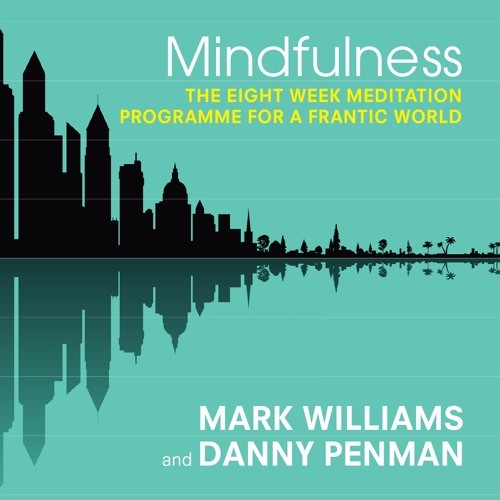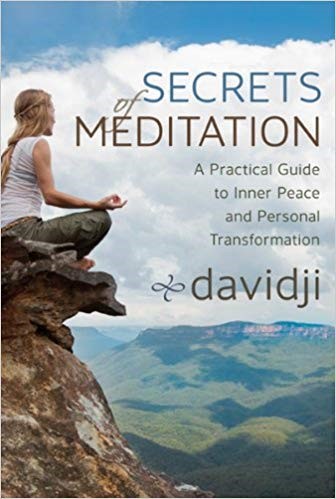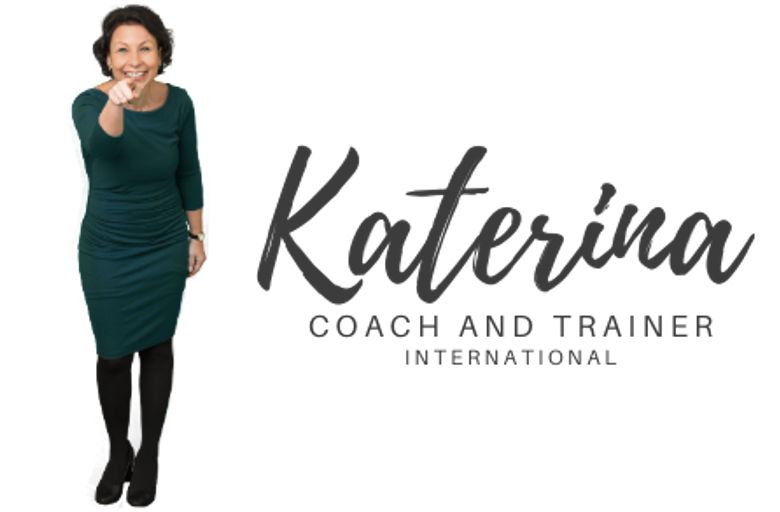Mindfulness practice
a Kosmopolites interveiw with Kateřina Kryllová
„Mindfulness is our ability to pay attention to what is happening in the present moment. Being fully aware, not running on the autopilot. And that has incredibly important consequences for our work and our lives.”

Katerina, what is Mindfulness for you?
Mindfulness to me is “the capacity to pay attention to what is happening in the present moment with non-judgmental,
or even kind, attention.”
What does it mean in our daily life?
We, human beings, have many forms of automatic behaviors.
Some are simple, like that we brush teeth or drive on autopilot. Some are more complex, like when somebody criticizes us, we have an automatic (unconscious) habit to defend ourselves, we strike back and create conflicts.
Some are helpful, some are not. Eating on autopilot, for example, means that you eat more than you wish and less healthy food than you wish and you do not even know how your food tastes.
We spend a surprisingly significant part of our life on the autopilot.
Mindfulness helps us develop our capacity to be present in the moment when things are happening.
We learn to wake up from the autopilot habits and with full awareness create our daily experience. It is like switching off the autopilot and driving on the manual instead.
For example, when you practice mindful eating, you are fully aware of what you´re eating, so you enjoy your meal much more, you usually eat less, and you make a conscious choice of what you want to eat (which is usually the healthier version for your body). Another perspective is that you either react automatically or you apply your free will, your conscious choice.
Viktor Frankl describes this beautifully in his quote when he says:
“Between the stimulus and the response, there is space. And in that space lies your power and your freedom.”
Viktor Frankl
Mindfulness enables us to consciously create our lives instead of being dragged by circumstances.
And why our attention needs to be kind or non-judgmental?
Because what we practice goes stronger.
And we are too quick to judge ourselves. Let´s say you wanted to practice mindful eating and you did not catch it today, and again you had a hamburger instead of carrot. Your self-talk could be something like this “God, is this even possible? Why am I not able to do such a simple thing? I´m a damn looser..” and we would be practicing and strengthening self-criticism instead of better awareness.
So when you catch yourself falling off the track, you can say to yourself “Aha, I can see this. It´s ok. I´ll pay attention again tomorrow, I´ll find a way.”
How did you approach mindfulness practice?
Honestly, I used to be very skeptical about things like meditation and mindfulness. They seemed too esoteric to me.
And then in 2014, I was going through a very challenging time in my life. As an experienced coach (10yrs) I used everything I knew to heal my life, and I was pretty successful except for one thing.
I rebuilt my life, everything was objectively great, BUT I could not get rid of my toxic thinking. My mind kept replaying the painful memories to me, it was like an unwanted advertisement on the radio, and I could not switch it off. It was really poisoning my life.
And at that moment I´ve heard an interview with US meditation teacher, Davidji, and he talked about the fact that meditation could help me heal my mind. I was desperate, so I gave it a try. And to my absolute amazement, it worked. In just a couple of weeks, my toxic thinking disappeared and never came back. Meditation earned my deep respect, and I became a certified meditation teacher.
How does mindfulness help people manage their emotions and thoughts?
I´ll take it one by one.
How we work with thoughts?
Mindfulness meditation (especially the core practice, breath meditation) teaches us to focus on breath and come back to it over and over again. This helps us cultivate better focus of our attention, our mind does not jump around like a little monkey so much and we decrease the fluctuation of thinking.
Also, you are able to witness your thoughts. You can see that your thoughts and you are not the same. And you´ll be able to see that these thoughts come and go like clouds in the sky and you do not need to engage with them with your attention.
With emotions, we work a little differently. First of all, we learn to recognize them. Why? An average human being in our modern society can distinguish 3 emotions (happy, sad, pissed) and that is it. We do not understand what is happening inside us, so it is almost impossible for us to handle it well. First of all, we learn to name our emotions to get to know them better. And then we learn to stay with them. We do not push them away, we listen, go through them. One of the beautiful mindfulness techniques is called RAIN (Recognize, Allow, Investigate, Nourish).
In the end, we understand our emotional life better, and we are able to work with our emotions in a friendly way.We also develop our empathy and understanding for others.
Recently, mindfulness seems to be also applied at school. How do you see this approach towards kids?
I love that idea. I have seen some programs, where kids learn to breathe and calm down before they act. They learn to be more aware of their body, they work with tension and relaxation. Kids learn naturally like sponges, and it quickly becomes part of their natural behavior. I believe it is one of the greatest gifts we can give them. And I know these programs have great results related to a decrease in aggressive behavior, better relationships in the classroom, better school results.. etc.
I honestly believe that once you become mindful, you are no longer capable of engaging in completely destructive behavior to yourself and to the world. If we help future generations to be more mindful, we can transform this world.
What would you suggest to an individual who is approaching mindfulness?
I think it is very difficult to get oriented in the overwhelming ocean of resources on the internet.
If you want to start, you can
• Listen to free videos on youtube from Tara Brach or Pema Chödron, who nicely explain different topics
• Read a good book, I highly recommend Mindfulness-How to find peace in this frantic world or Secrets of meditation by Davidji (both can be bought on Amazon). Also Inside Out Revolution by Michael Neill is great to understand the nature of mind.


• Join an online program on SoundsTrue or Davidji.com
• The guided program was very beneficial for me.
Would you suggest mindfulness practice for work-life balance related issues?
Yes and Yes! One of the ways you can look at Mindfulness practice is through these three pillars:
1. WE ARE TRAINING OUR MIND
These practices help us to better focus and decrease the fluctuation of our thinking (brings more calm and peace of mind, you can experience a better quality of sleep also)
2. WE CULTIVATE OUR PRESENCE IN DAILY ROUTINE ACTIVITIES WHERE THE AUTOPILOT TENDS TO TAKE OVER AND WE RE-CONNECT TO OUR BODY
These practices help us be more mindful of our daily life and the small gifts of joy every day. We experience more joy and richness of life. By reconnecting to our body we also understand our needs and emotions in a much better way.
3. CULTIVATING THE KEY QUALITY OF ATTENTION – NON-JUDGMENTAL OR EVEN KIND ATTENTION (TO THE WORLD, TO YOURSELF)
These practices help us see reality more objectively without our confirmation biases. And we balance our perception to see more of the good things and weaken the negative orientation that is embedded in our bones. We become more aware of the already existing gifts in the world and in yourself.
In my training sessions, we talk about very practical and simple tools that help us develop all of these pillars. We also talk about mindful time management, awareness of your boundaries and healthy communication around them, so there are many more benefits you can gain.
I wish you an enriching journey, and if I can help you in any way,
I´ll be happy to do so. With love, Katerina

Look at the original version of this article – Autor: KOSMOPOLITES.ORG
